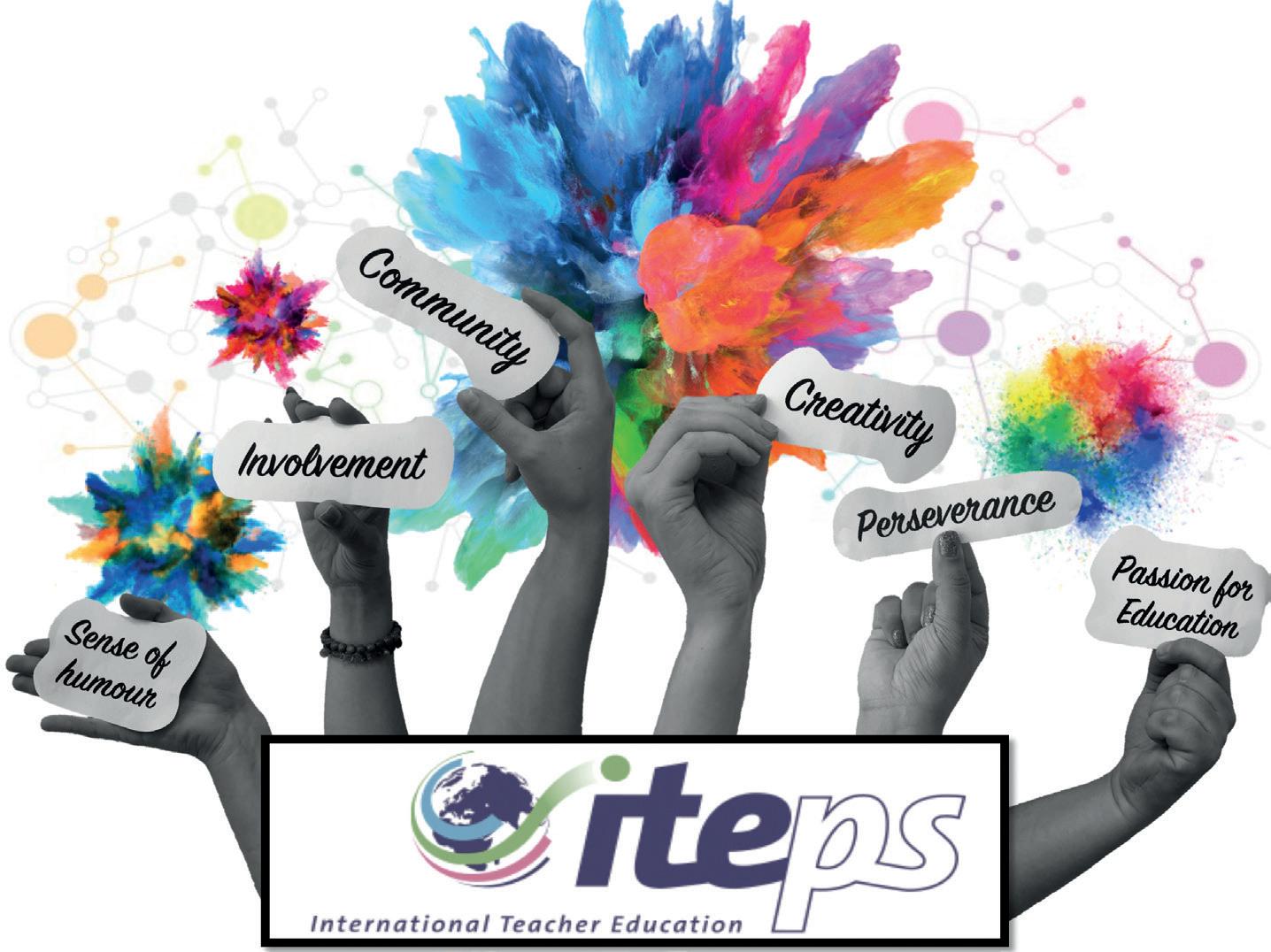Features
Preparing for futures unknown Sally Burns considers which qualities we need to encourage in young learners ‘Knowledge is changing so fast that we cannot give young people what they will need to know because we do not know what it will be’ (Guy Claxton) This well-known quote in many ways sums up the challenges faced by education today. From a personal point of view, it is what inspired us to rework and relaunch Values and Visions. At the October 2019 conference of the Alliance for International Education (AIE) hosted by the International School of Geneva, Dr Simona Popa of the UNESCO International Bureau of Education talked of ‘preparation for the unknowns’, the ‘fastchanging context’ and ‘an unknown future’ or, as UNESCO says, ‘futures’. Dr Conrad Hughes considers such issues in more depth in his most recent book, where he speaks of ‘international organisations such as UNESCO and UNICEF grappling with challenges and problems at an international scale’ (Hughes, 2018). Attempts have been made to address these challenges. The twenty-first century competencies are a case in point, summarised as the four Cs: collaboration, communication, critical thinking and creativity. In another initiative, in partnership with UNESCO, the International School of Geneva’s La Grande Boissière campus has devised the Universal Learning Programme (https://sites.google.com/ecolint.ch/ulp/home) which highlights seven competencies: lifelong learning, self-agency, interacting with others, interactively using diverse tools and resources, interacting with the world, multi-literateness and transdisciplinarity. They advocate teaching for deep understanding, assessing competencies and creating social impact, as noted in Dr Hughes’ keynote address to the AIE conference. In my opinion the clearly-defined competencies and the above approach are a major step in the right direction, and should definitely be at the heart of the curriculum, although they are not enough. We at Values & Visions (V&V) believe young people need inner strength to help them find meaning and purpose in the volatile world in which we live and into which they will step when they leave school. Let me elaborate on this. beautiful chaotic fast-paced volatile consumerist fragile uncertain changing exciting unpredictable
Figure 1: Today’s world is … Autumn
Spring |
| 2020
Using a V&V activity called ‘Today’s World is…’. I have asked a number of educators to brainstorm words to describe today’s world. Some of the words that have come up are shown in Figure 1. I then go on to ask: ‘If you could give your child one gift or quality to engage actively with this world, what would it be?’ Countless teachers, governors and parents have been asked this over the years. Some of their responses are shown in Figure 2.
Figure 2: One gift or quality In one whole-school workshop on globalmindedness, we clustered the qualities that emerged and came up with nine which we then prioritised, with ‘empathy’ coming out on top to become the focus of the semester’s work, threaded through curricular and extra-curricular activities. What we are coming back to here are values. But whose values? In his AIE keynote address, Conrad Hughes discussed at length the values behind the curriculums; those of the companies supplying the software and hardware now indispensable for schools, for example. He stressed the need for educators to be aware of these and their implications for learning. Fazal Rizvi, in his own AIE keynote address, echoed this when he differentiated between commercial and ethical values, asking how we teach the difference and how we talk to kids about values. He alluded to ‘public values’. These have emerged in the UK in the form of ‘British values’: a set of values which schools must instil in their students (GOV.UK, 2014). We at V&V argue that values cannot be instilled, cannot be taught. A group of trainee teachers from the ITEps (International Teacher Education for primary schools) programme at Stenden University expressed the problem
13

























